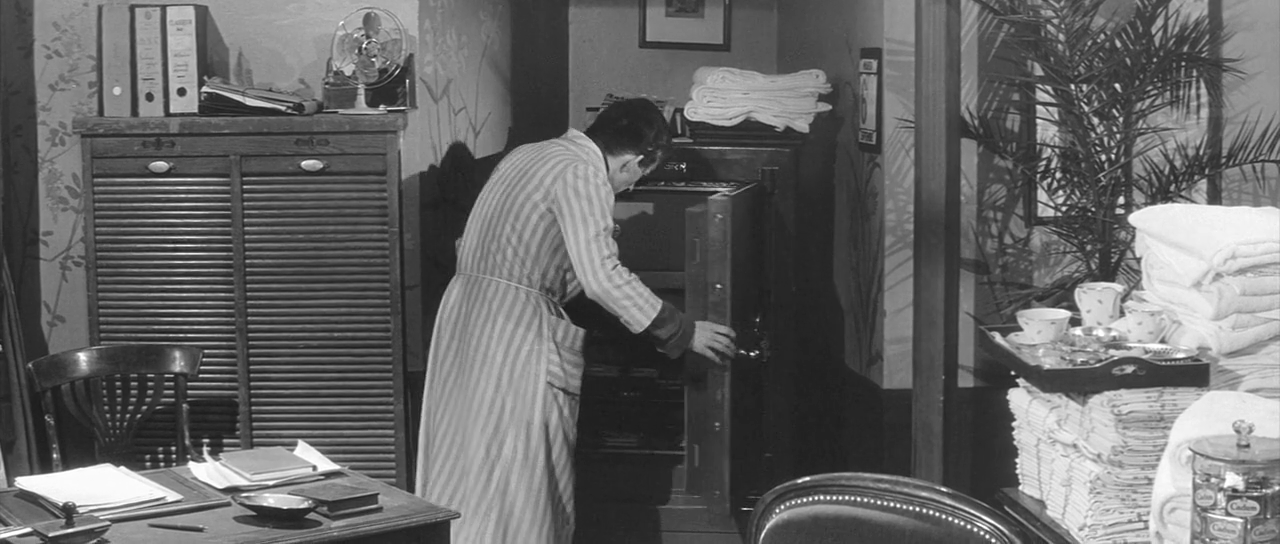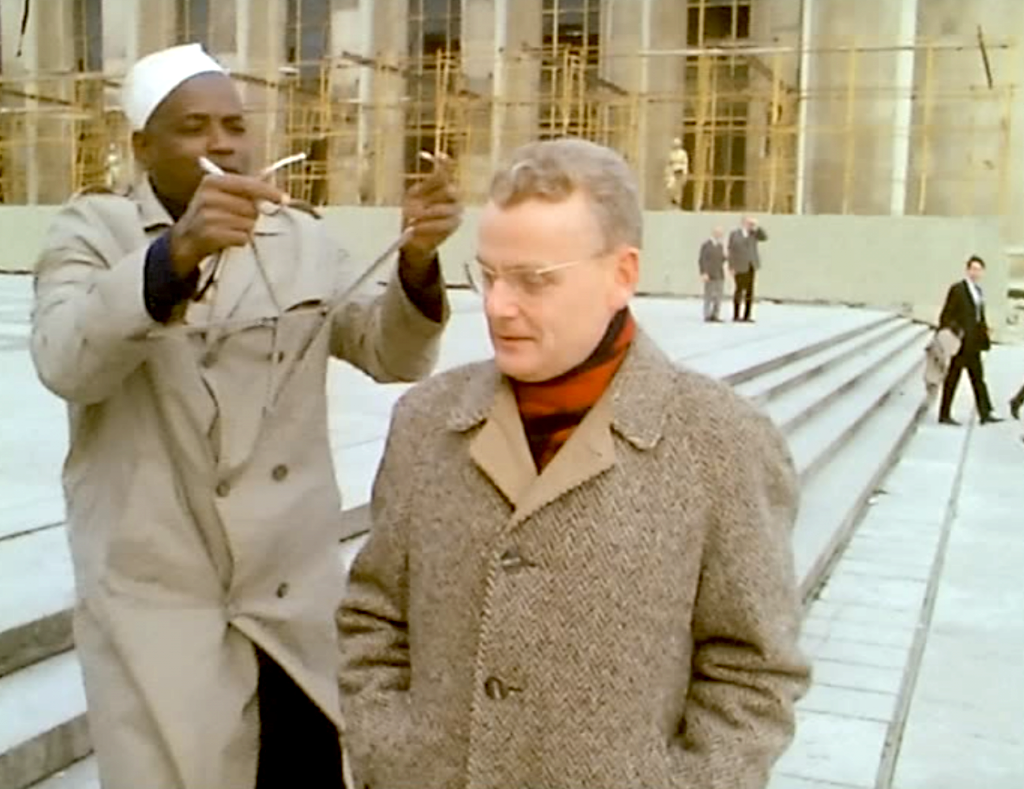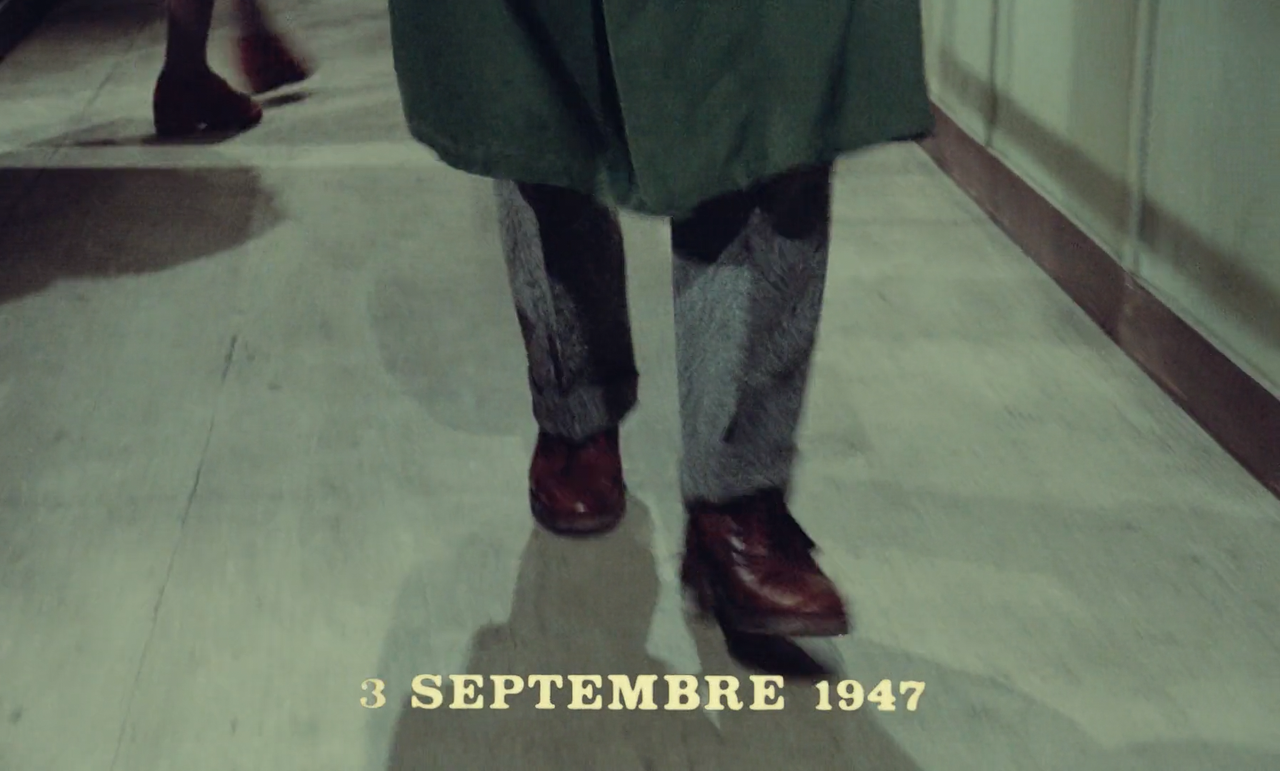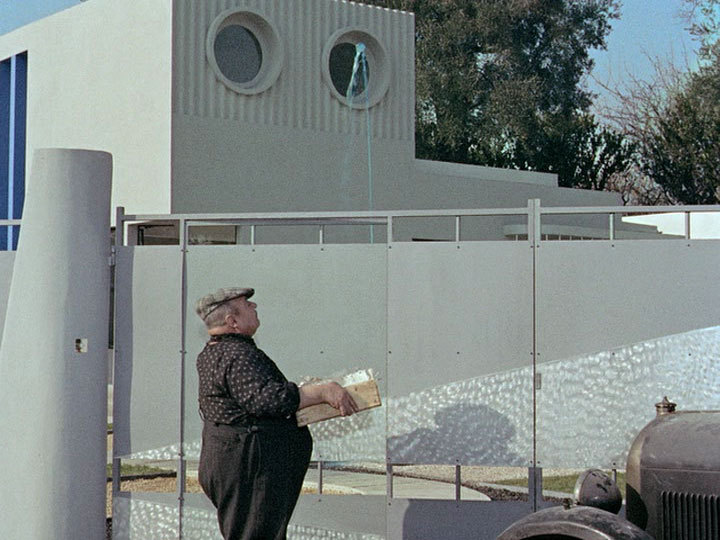Die Delegation – Eine utopische Reportage [The Delegation] (Rainer Erler, 1970)
Sep
9
0 h 20 GMT

Reporter Will Roczinski (Walter Kohut) picks up mysterieus signals through the ether (via). DP: Charly Steinberger.
We watch the final report by Will Roczinski, who sadly died in a car crash while working on a TV documentary about UFOs and the like. A fascinating early “faux footage” film from the BRD. One can only wonder how the average West German processed the fantastic premise.
France
“I had imagined this journey as a quest. I finished my studies in math. I wanted to live. I wanted to burn all the bridges, all the formulas, and if I got burned, that was okay, too. I wanted to be warm. I wanted the sun and I went after it.”More (Barbet Schroeder, 1969)
Sep
7

Estelle (Mimsy Farmer) and Stefan (Klaus Grünberg) tripping in Ibiza. DP: Néstor Almendros.
– Stefan
Mélodie en sous-sol [Any Number Can Win] (Henri Verneuil, 1963)
Sep
6
Tue

Mario (Henri Virlojeux), bathhouse proprietor. A nearby wall calendar reads mardi, septembre 6. DP: Louis Page.
“The pickings were poor and not worth the risk.”Pickpocket (Robert Bresson, 1959)
Sep
6
Sun

The newspaper of Sunday, September 6, announcing a derby. DP: Léonce-Henri Burel.
– Michel
Nuits rouges [L'homme sans visage / Shadowman] (Georges Franju, 1974)
Sep
6

A faceless man in black wearing a red balaclava (Jacques Champreux) holds his right wrist, which is bleeding profusely. DP: Guido Bertoni.
Le vampire de Düsseldorf [The Vampire of Dusseldorf] (Robert Hossein, 1965)
Sep
5

Robert Hossein as Peter Kuerten [sic]. DP: Alain Levent.
Petit à petit [Little by Little] (Jean Rouch, 1970)
Sep
3
Skyscraper Day

Damouré (Damouré Zika) measures a Parisian with craniology callipers. No skyscraper in this still, but there's scaffolding. DP: Jean Rouch.
A skyscraper for Skyscraper Day (USA)
In the sequel to Rouch's Jaguar (1967), Damouré wants a high rise for his Niger business with “as many floors as he has wives”. He decides to travel to Paris to learn about the construction of such building, and what made Paris to the Paris of today. While there, he gets distracted by the peculiarities of the French natives. Worried about Damouré's increasingly puzzling postcards, his company sends out Lam (Lam Ibrahim Dia) to bring him home.
Flic Story [Cop Story] (Jacques Deray, 1975)
Sep
3
1947

A close-up of a man's feet hastily walking along a corridor. Superimposed it reads 3 SEPTEMBRE 1974. DP: Jean-Jacques Tarbès.
– A house like yours must be such a job!
– Oh, a leaf! Ah, yes it's a chore.
– Admit it, you love it.
Mon oncle (Jacques Tati, 1958) / Koolhaas Houselife (Ila Bêka + Louise Lemoine, 2008)
Aug
29
grey


A delivery man in front of the gates of Villa Arpel (via), and custodian Guadalupe Acedo working the lift in Maison à Bordeaux. DP of Mon Oncle: Jean Bourgoin.
[A favourite] colour: grey*
Approaching the 60s, Mr Hulot finally switches from black-and-white to colour. Suddenly, we see that his suit is a beigeish grey and so is the Arpels' house, that modernist masterpiece designed by Tati. The beloved luddite struggles with hypermodern people and their hypermodern constructs, much alike the future Hulot from Playtime (1967).
In similar absurd fashion, Guadalupe Acedo, cleaning lady, works her way through Rem Koolhaas' Maison à Bordeaux (1998) in Bêka and Lemoine's Koolhaas Houselife (2008). Too steep are the stairs, too leaky everything else. Levelheaded, she does her thing; a small beacon of romantic practicality in a world of absurd efficiency.
* the Bales 2025 Film Challenge for August is not date-related but lists, for the most part, the colours of the rainbow.
“Everything is rotten. Decadence is everywhere. Why fight it?”Les créatures [The Creatures] (Agnès Varda, 1966)
Aug
29

Mylène (Catherine Deneuve) and Edgar (Michel Piccoli) Piccoli playing checkers at a small table. DPs: Willy Kurant, William Lubtchansky & Jean Orjollet.